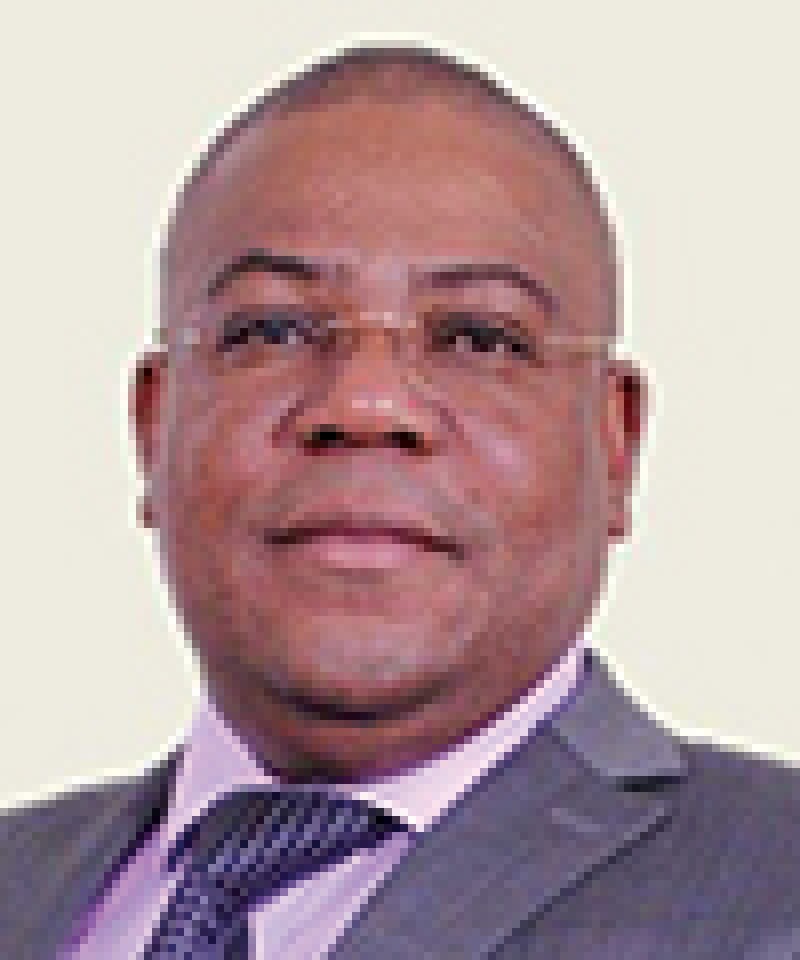'Resource curse’ or ‘paradox of plenty’ were expressions coined to describe countries just like Angola.
Angola is among the resource-richest countries in the world, but its economy seems to be forever moving at a crawl. The reason is well-known: over the past decades, it has become so dependent on petroleum that it has neglected every other key sector. In fact, hydrocarbon production still represents over 90% of the country’s exports.
Once famed for being a major global producer and exporter of iron ore, gold and copper, the industries in Angola have largely slowed. Likewise, production of coffee (there was a time when the country was single-handedly responsible for one-fifth of the world’s coffee production), sugarcane and cotton, timber and paper-pulp, and processed fishing have also diminished, and Angola’s exports of these products today represent close to a hand full of nothing.
The problem of putting all your eggs in one basket is just that: if something happens to the basket, there go your eggs.
Financial slowdown
When oil prices plummeted down in 2014, after years of being above $100 per barrel, Angola’s economy was nearly left for dead and has been on a life support system ever since. Just when the political and financial reforms initiated in 2017 were expected to jolt the Angolan economy back to life, the Covid-19 outbreak and ensuing oil price volatility brought it to its knees again.
The pandemic has hit Angola hard. Global trade and investment dropped significantly at a time when its economy was still grappling with the sharp drop in oil prices and the production cuts ordered by the Organization of Petroleum Exporting Countries (OPEC), of which Angola is a member since 2007.
Public debt skyrocketed to over 120% of the GDP, inflation was above 20%, the Kwanza kept devaluating fast, unemployment reached levels close to the 2006 dark economic period, and protests inevitably came to the streets.
Economic revival
The Angolan government was required to act fast, which it did. A stimulus plan including social assistance and health spending measures was cleared, a supplementary budget (using a conservative oil reference price) was approved, and a set of tax and monetary measures aimed at supporting the economy and controlling inflation were passed.
|
|
“As demand for mineral resources increases, the mining industry is a key priority in the short term” |
|
|
Moreover, further to the IMF’s positive third review to the extended fund facility in place, the government managed to secure an additional $1 billion facility, a debt repayment suspension under the G-20 Debt Service Suspension Initiative, and delayed the country’s exit from the least developed countries’ list, a smart political move that allowed Angola to retain preferential access to markets and funding until 2024. Payments relief from lenders like China, whose debt is mostly made up of oil-backed loans and direct repayments, were also obtained.
Despite being focused on dealing with the impact of the pandemic, over the last 18 months, the Angolan government has stuck to its National Development Plan 2018-2022 agenda and reform programme supported by the IMF, and leveraged on its oil and gas sector to continue on the road to diversification.
Oil and gas
Major oil and gas projects poised to go live in 2020 had to be postponed, jeopardising Angola’s endeavours to secure more investment for upstream exploration and development. Extra funding would have helped to prevent the decline of the country’s mature offshore fields and lower production levels going forward, from Q4 2020 to date.
However, it started to seem like old times again for the local oil and gas industry, partly owing to the ongoing reform in the sector (initiated in 2018), the approval of the new local content regulations in 2020, and, of course, partly due to the rise in Brent Crude prices in the first months of 2021, averaging close to $60.
Exploration and production (E&P) developments have been gaining momentum over the past eight months.
Total resumed drilling operations (for the first time since 2018) and announced the execution of a sale and purchase agreement with Sonangol for Blocks 20/11 and 21/09 in the Kwanza Basin, offshore Luanda;
ExxonMobil and Sonangol were awarded risk service agreements for Blocks 30, 44 and 45 in the yet unexplored Namibe basin;
Chevron started discussions to extend the Block 14 Consortium;
BP started implementing its drilling program for the development campaign at Block 18 (BP’s first operated development in Angola since 2012);
ENI announced that it is going to invest $7 billion over the next four years together with its joint venture partners. BP and Eni have inclusively just announced that they are considering merging their Angolan oil, gas and liquefied natural gas assets into a joint venture in a bid to revive output, a plan that is still subject to governmental, regulatory and partner approval; and
The Petroleum, Gas and Biofuels National Agency has recently launched an onshore bidding round for nine blocks, three in the Lower Congo Basin and six in the Kwanza Basin, as part of the 2020-2025 Hydrocarbon Exploration Strategy.
These revamped production levels and E&P developments are definitely good news for an economy still heavily dependent on oil exports.
On top of field development, the government has also sought to improve in-country fuel supply. Although a major net oil producer, Angola still imports about 80% of all its refined petroleum products (including gasoline, diesel, aviation fuel, Jet B for gas turbines, oil fuel, asphalt and lubricants), with only 20% of refined products being sourced locally as the country has little to no refining capacity.
Three refineries with a total capacity of 400,000 barrels per day (BPD) are being built at the time of writing and the installed capacity of an existing refinery is being trebled, so one hopes that Angola will eventually produce more refined oil products than it consumes.
Lastly, Angola signed a $5 billion memorandum of understanding with its neighbour to the east, Zambia, to build pipelines between the two countries and transport gasoline, diesel, kerosene, and gas from Angola to Zambia. The project will create between 12,000 and 14,000 jobs in both countries, an important feat by any measure. The envisioned liberalisation of the downstream sector is pushing for investments: the recent deal between Puma Energy, Trafigura and Sonangol, whereby the latter sold 100% of its shareholding in Puma Energy to Trafigura and bought Puma Energy’s Angolan business and assets, was anything but accidental.
Mineral resources
While pushing for its main breadwinner, the government also focused on putting other sectors on private investors’ radars.
As demand for mineral resources increases, the mining industry is a key priority in the short term and new investors are particularly interested in mining mineral resources critical for the global energy transition. Moreover, the development of new technologies are sure to join the ranks of long-term diamond sector investors (in addition to diamond, Angola holds significant iron ore, phosphates, copper, gold, manganese, marble, granite, and quartz reserves, and plans to kick off niobium exploitation in Huíla province). The National Geology Plan and the 2018–2022 National Development Plan strategically focus on the mining sector and forecast a substantial diamond production increase in 2022, namely 13.8 million carats.
|
|
“Green hydrogen presents another great opportunity for boosting Angola’s renewable resource wealth” |
|
|
The sector also got a makeover with the setup of the National Agency for Mineral Resources and of the Angolan Diamond Exchange Market, and the enactment of the new Governance Model for the Mining Sector. This ensuing increased transparency in the marketing of rough diamonds has already started to attract investors to the country.
Moreover, there is a major ongoing plan for building a Diamond Development Hub in Lunda South, including four diamond cutting plants, two training centres specializing in diamond mining, valuation and cutting. A $150 million investment resulting from the partnership between Gemcorp and Endiama is also expected to enable the processing of an additional 3 million tons/year of kimberlite for the country at full production phase, by mining and processing iron and steel.
Transport infrastructure
The aviation sector has caught the eye of the government, which devised a strategy to promote the sector’s growth, secure foreign direct investment (FDI) and ensure the overall sustainability of the sector, improve operational safety and bring the regulatory and tariff framework in line with best international practice. The rumours that Qatar Airways is exploring a sizable investment in troubled TAAG Angola Airlines may have something to do with this.
Moreover, the government is also committed to developing port infrastructures and logistics, having recently signed a $190 million 20-years concession agreement with DP World, the Emirati multinational logistics company based in Dubai, for the operation of the multipurpose terminal at the Port of Luanda. Other concessions and investments are under discussion, and the government is working on a new strategy to develop maritime cabotage and river transport of passengers.
Agriculture and renewable energy
The next huge step towards diversification was the approval in April of several important amendments to the existing Private Investment Law (PIL), enacted by Law 10/18, June 26 2018. The amended act grants bespoke incentives, facilities and other rights to lenders that invest in projects liable to have a structural impact on the development of the local economy and social well-being of the population, seeks to improve the country’s competitiveness by generating and attracting more direct investment, and creates the conditions for a more investor-friendly business environment.
Agriculture is expected to benefit the most from the amendments to the PIL. Despite the increase in agricultural production over the last years, Angola could be producing much more since only about a third of its arable land is used for crops. The country’s abundance of arable land and fresh water, its location on the coast, growing population (one of the fastest in the continent), increasing demand for food and beverages, and the recent reforms made by the government with the cooperation of both the World Bank and the International Finance Corporation, of which the Program to Support Production, Export Diversification and Import Replacement (Prodesi) is an example, makes this sector extremely attractive to boost FDI initiatives.
Investment in clean energy is also expected to grow. One must recall that the Angolan government launched an extremely ambitious plan for the sector (the so-called, ‘2025 Angola Energy Plan’): as part of its long-term development strategy, the government aims to increase access to electricity to 60% of the population by 2025, with 70% of electricity expected to be derived from renewable sources.
To that extent, in addition to having recently revised its electricity tariff regime, implementing an energy subsidy reform, and passing new laws on procurement and electricity distribution to support independent power generation, the government has formally sought the assistance of the Sustainable Energy Fund for Africa (SEFA) to develop and implement a regulatory and institutional framework that would boost private investment in the generation of renewable energy.
The initiative would also reduce Angolan’s dependence on hydrocarbons, which is inclusively aligned with Sonangol’s positioning, who, committed to a responsible approach by integrating environmental, social and governance (ESG) factors in the running of its business, has recently launched a new gas and renewables unit as part of its move into the broader ‘energy sector’. Rumour has it that the new regulations on power generation, transmission, distribution and marketing are likely to see the light in the near future, and investors are getting very interested.
It goes without saying that in addition to solar and hydropower, green hydrogen presents another great opportunity for boosting Angola’s renewable resource wealth. If Angola can offer a robust regulatory framework, financial instruments and project financing structures that offset risks, private parties will certainly flock to the country to invest in renewable energies.
Privatisation and future opportunities
One cannot talk about Angola’s future without referring to the ongoing privatisation programme (PROPRIV), where over 170 state-owned enterprises and assets will be privatised by 2022, including strategic national reference companies such as Unitel, Angola Telecom, Angola Cables, MS Telecom (telecommunications and IT), BAI, BCI and Banco Económico (banking), Ensa (insurance), Bodiva (capital markets), Sonangol EP and Endiama EP (petroleum and mineral resources), TAAG (transport), Nova Cimangola, Secil Lobito, Biocom, Cuca and EKA (industry) and Mota-Engil Angola (construction), to name a few. The PROPRIV will certainly boost the local M&A sector and contribute to increased FDI levels.
Additionally, Angola has recently executed bilateral investment treaties with Portugal, the UAE and Spain, in the hope that this will promote further investments.
With these reforms under its belt and thanks to the ongoing vaccination campaigns, Angola is certainly one of the economies in Africa better positioned to embrace the future with confidence, knowing that it is just a matter of time until investors start looking at the country as the place to be again.
Opportunities are clearly there, and investors from Europe (notably, France, Germany, Italy and Spain), UAE, and Japan are being quick off the mark in seizing opportunities in Angola, knowing that those who stay together through thick and thin will be rewarded in the time of plenty to come.
Click here to read all the chapters from IFLR's Africa Market Makers 2021

José Miguel Oliveira
Partner
Vieira de Almeida
T: +351 21 311 3450
E: jmo@vda.pt
José Miguel Oliveira is a partner of the oil and gas practice group, and is also responsible for the shipping practice, at Vieira de Almeida.
José has over ten years of international experience in African jurisdictions, including Angola and Mozambique, where he has been actively involved in projects and operations across the oil and gas industry’s value chains. He has advised different players in the sector in connection with issues including contractual matters, corporate, restructurings, M&A and FDI matters. In addition, he is regularly involved in providing daily advice to companies in the energy, infrastructure, distribution, retail and transport sectors.
José is a graduate of the University of Coimbra and holds a LLM from King’s College London. He is qualified to practice in Angola, Portugal and Timor-Leste.

António de Sousa Penelas
Partner
ASP Advogados
T: +244 923 416 781
António de Sousa Penelas is a partner at ASP Advogados, a member of the VdA Legal Partners network.
António has been actively involved in several transactions in Angola, with a particular focus on oil industry services, energy, mining and shipping. He has an extensive experience in civil, criminal, tax and administrative litigation matters. He also often assists clients in corporate, commercial and labour matters, and participates in negotiations of mining contracts with international companies.
António is a graduate of Agostinho Neto University.




